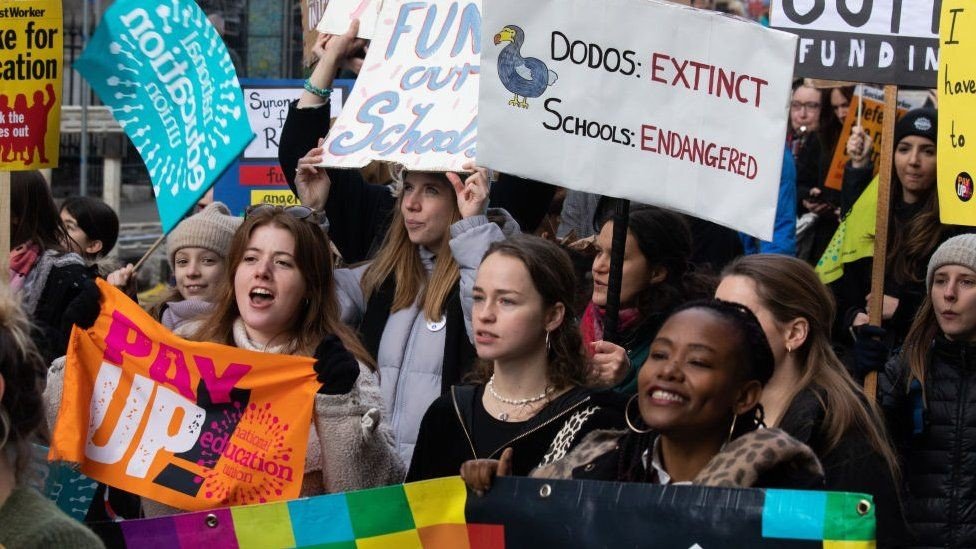Report by Kamgar Ekta Committee (KEC) correspondent

Nearly 100,000 teachers struck work on March 15 and 16, under the banner of the National Education Union (NEU).
They are demanding pay increases that compensates for high inflation which has been over 10% for many months.
Salaries in England fell by an average of 11% between 2010 and 2022, after taking inflation into account. Unions claim teacher pay has fallen by as much as 23% in that time.
Most state school teachers in England got only 5% rise in 2022. For 2023/24, the government has offered only 3% rise, which is way below prevailing inflation.
The teachers are also demanding more recruitment of teachers, reduction of workload, urgent repair and upgradation of schools, job security and support for special educational needs. A report of the National Foundation for Educational Research (NFER) found that the number of teacher vacancies in schools was 93% higher in the up to February 2023 than at the same point in the year before the pandemic (2018/19). This has significantly increased the workload on existing teachers.
Teachers in Britain have been waging a persistent struggle for several years now, for a modern education system supported by adequate funds from the state, in order to ensure a better future for the children.
The striking teachers have severely denounced the government for imposing the pre-condition that the strike should be withdrawn before any negotiations can be held with the teachers on raise of pay and funding.
Nearly 70,000 workers at 150 universities across Britain have also been on strike for 18 days now. These include university teachers, librarians and other staff. They are demanding an adequate pay raise to deal with the increasing inflation, as well as an end to insecure job contracts and extremely heavy workload.
They have pointed out that one-third of the academic staff are forced to work on temporary contracts, while university staff do an average of two days’ additional unpaid work per week,
They are demanding the government to revoke the pension cuts, imposed last year and restore all pension benefits. These pension cuts, they pointed out, have meant a loss of 35% in the guaranteed pension income of the retired university staff.

